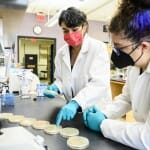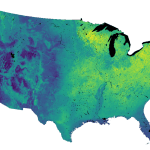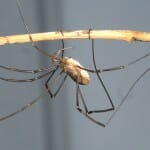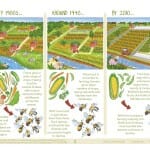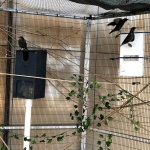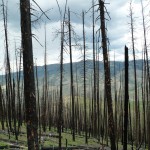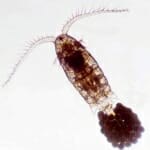Tag Biology
How to save a life from a student who did it
After a life-or-death incident, UW–Madison biology student Anthony Lange set out to pursue a career in emergency medicine.
New recipes for origin of life may point way to distant, inhabited planets
A team led by scientists at UW–Madison has exploited those limitations of chemical combinations to write a cookbook with hundreds of recipes that have the potential to give rise to life.
Enzyme, proteins work together to tidy up tail ends of DNA in dividing cells
The research provides insight into how a human cell preserves the integrity of its DNA through repeated cell division.
The search for how life on Earth transformed from simple to complex
A new NASA collaboration of astrobiology researchers co-led by a UW–Madison professor will spend the next five years dedicating their efforts to understanding how life evolved on earth, and how it possibly could evolve on other worlds.
Nationwide maps of bird species can help protect biodiversity
The high-resolution maps can help conservation managers focus their efforts where they are most likely to help birds — in individual counties or forests, rather than across whole states or regions.
Scorpions’ venomous threat to mammals a relatively new evolutionary step
An international team of researchers led by UW–Madison biologists has assembled the largest evolutionary tree of scorpions yet, showing seven independent instances in which the distinctive eight-legged creatures evolved venom compounds toxic to mammals.
How does a spider weave its web?
Integrative Biology Professor Prashant Sharma’s lab studies spiders and their ancestors to ask questions about how their unique forms, such as spinnerets, came about.
Midwest bumble bees declined with more farmed land, less diverse crops since 1870
Native species declined while the average number of different crops grown in these states was cut in half and as modern agriculture began to focus on intensive production of corn and soybeans
NSF award to establish network for advanced NMR across three institutions
UW–Madison will join a first-of-its-kind collaborative network for nuclear magnetic resonance spectroscopy, which researchers use to probe large biological molecules like proteins and RNA.
Songbirds sing — like humans flock — for opioid reward
New research found that when songbirds sing during non-mating seasons, it’s because singing releases an opioid naturally produced in their brain —that’s right, a compound with the same biological makeup of the highly addictive painkillers.
Landscape ecologist Monica Turner: California wildfires aren’t a random situation
For more than a decade, Turner has warned that situations like the one that damaged Yellowstone in 1988 could become more common. She puts the current catastrophic wildfires into context for us.
Professor will make ‘workhorse’ microscope more powerful
Kevin Eliceiri says he has always believed that science is best done by building on the work of others and openly sharing what you have done.
Study says “hidden overharvest” from fishing plays a role in Wisconsin walleye declines
New research finds that It finds that 40 percent of walleye populations are overharvested, which is ten times higher than the estimates fisheries managers currently use.






